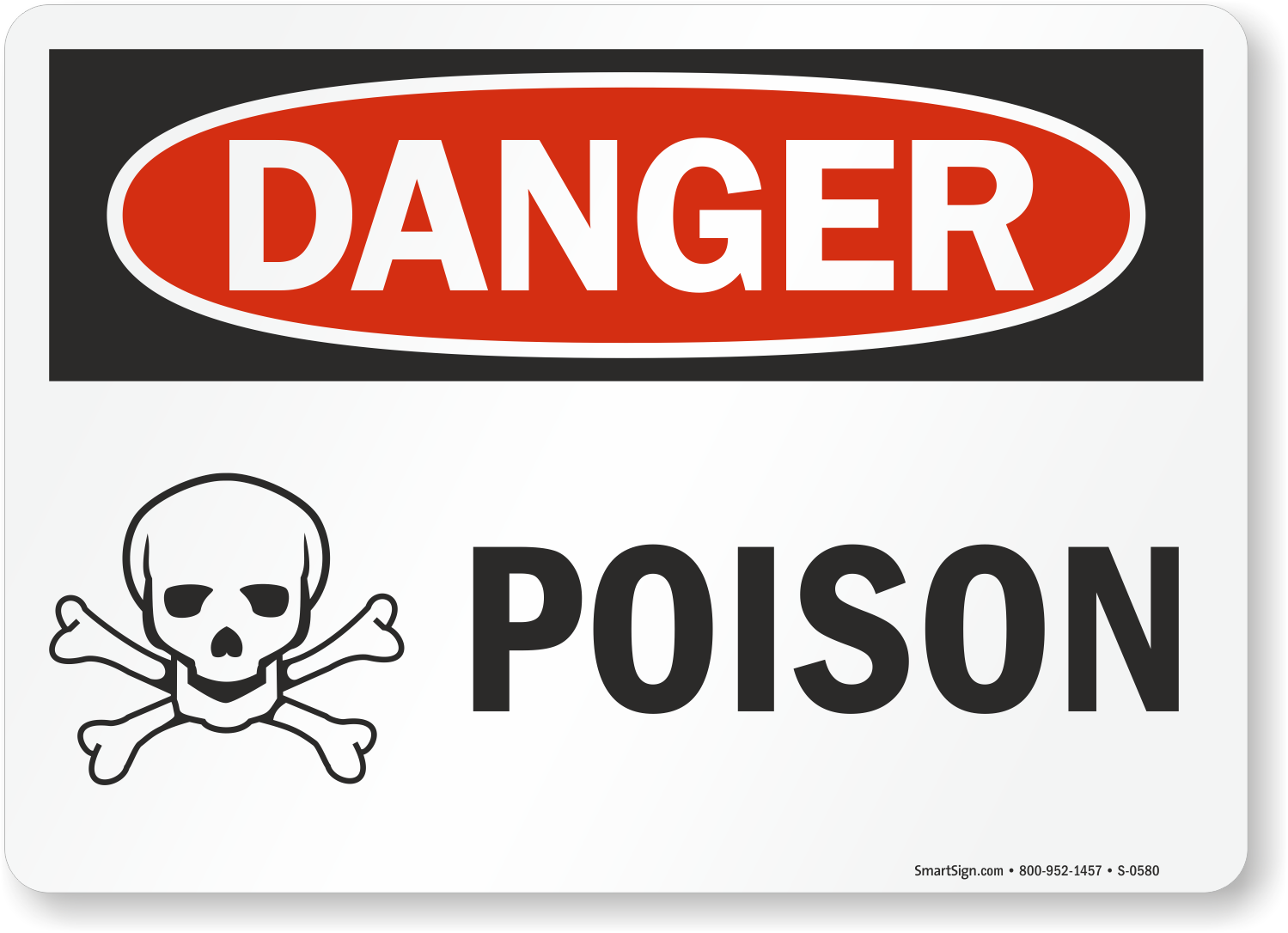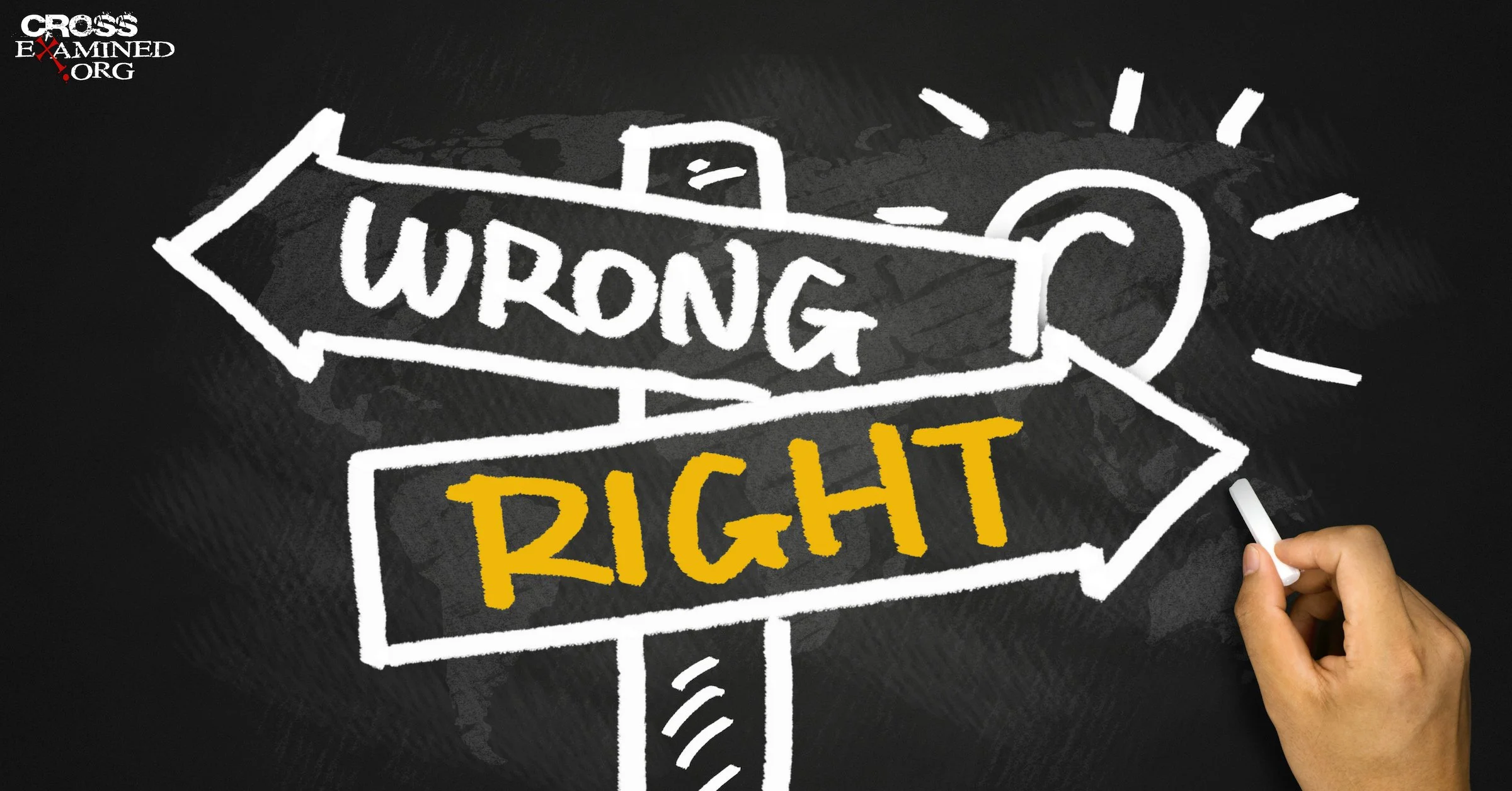Welcome to 4S
4S: My moral philosophy
The new week of shorts starts here…
https://www2.cbn.com/news/israel/stunning-sign-sky-emerges-grieving-israelis-identify-loved-ones-killed-hamas
https://www2.cbn.com/news/us/god-did-victory-right-front-our-very-eyes-plot-kill-church-members-foiled
It is an occupational hazard that I am frequently pressed by my detractors to provide a systematic worldview and moral philosophy. That might be a perfectly reasonable demand if I had one. It remains true that I do not have a systematic worldview of any kind and see no need to adopt one. Despite the title of this article and the subject of this week's podcast, that is still mostly true for moral philosophy.
That said, I have attempted to come up with a moral philosophy if only for the mental exercise. The truest statement about my moral philosophy is that I am an amoralist. I don't believe that humans are fundamentally moral creatures. I believe we are social creatures who gained our mores via evolution. There was a lot of trial and even more error in the process.
We can describe our motivations and actions without ever making reference to morality. And I generally do. I tend to deal with that which is socially beneficial and socially harmful. If an act is not well-described by either, then it doesn't much matter to me one way or the other. No one needs a moral philosophy to lead a socially beneficial or neutral life.
I don't need to justify my morality to anyone. Therefore, it is futile to try to pin me down on any of the points in the moral philosophy I am about to outline. I hold all of the propositions loosely and am willing to refine them as I go, which is also in keeping with my moral philosophy as a whole. Here we go:
Moral naturalism
I care almost nothing about the moral part of it and a great deal about the naturalism part. I enter the realm of morality under protest. Briefly, morality, as I understand it, is a system by which one determines the necessary ought in a given situation. I suspect many believers do not define morality this way. They often skip the definitions and go directly to grounding their undefined notions of morality. So I find that believers and unbelievers are often talking past one another. I am not responsible for anyone else's definition, only mine.
As I define it, a thing cannot be a part of a functioning moral system if it is not within the confines determined by nature. Note that I conflate nature and reality and use them interchangeably. We cannot be held to any moral standard that we cannot meet, or that grievously contradicts the nature of the creature on which the system is being imposed. A bird might think it a moral requirement to fly from treetop to treetop at least once a day. But a bird could not impose that moral duty on me because I do not have the nature of a bird and cannot fly.
Even in the community of birds, there are those who are flightless and thus, are also naturally exempt from such a moral imposition. This brings us to the first tentpole in my moral philosophy:
Nature of the creature
Before we can determine moral facts for a creature, we must first take into account the nature of the creature. If the creature is asexual and nonsocial, we cannot impose moral obligations or expectations that only apply to social, sexual creatures.
Humans are social creatures and so are subject to moral obligations and expectations of social creatures. It is important to realize that this is just one aspect of the type of creature a human is. We have other aspects that need to be considered that I will not bother to go over here.
It is also important that we strip any magical thinking from the description of the type of beings we are. It is wholly fanciful and unhelpful to say that our nature is tied up in some way with the image of god. Not only can that not be demonstrated to be true, it cannot even be properly defined. Using terms like perfect and imperfect are also not particularly helpful without defining what you mean and why such a standard should apply.
Most believers would say that humans are imperfect. But by what standard is that true? I don't know. Even so, they also suggest that the only moral standard is perfection, as if they were acolytes of the Borg queen. In applying this standard, they make a crucial error which I will unfold next:
Trans-creaturely application
An earthworm is a different kind of creature than a human. It would be the height of comedic foolishness to apply human mores to earthworms. It can’t be done and shouldn't be attempted. The same comedic tragedy applies when believers try to apply a theistic moral standard to humans. We are not gods and cannot be held to moral standards that would apply to a god.
The distance between humans and the Judeo-Christian god is even greater than the distance between humans and earthworms. God's ways are above our ways. He is a sinless being incapable of sin. Humans can do nothing but sin without divine intervention. Adding divine intervention does nothing to help the Christian case because divine intervention could also render earthworms as righteous in the sight of god. According to the text, the heart of man is deceitful and desperately wicked.
God is a being with the nature and standard of perfection while humans are beings with the nature of fallibility yet supposedly judged based on the standard of perfection. This is a clear example of trans-creaturely application of moral standards and simply does not make a blind bit of sense.
The reason we do not apply human moral standards to the great apes is that regardless of how close their DNA is to ours, they are a different kind of creature. The same is true throughout the animal kingdom. The standard for apes is different from bears, is different from lions, is different from humming birds. There is another wrinkle that must also be considered:
Differences within the species
This is where we get into real controversy: Not all humans are the same. It is a hopeful fiction to declare that all humans are created equally. But that falls apart when one realizes that humans were not created at all. Homo-sapiens have a lot in common within the group. But they are not the same creature from one individual to the next.
A newborn baby is not the same kind of creature as the mother who bore it. They are both equally human. But that has no bearing as it relates to moral classification. A baby can do things without moral implication that a mature adult cannot. A baby can take things that do not belong to them without being guilty of theft. An adult cannot.
The same goes for two adults who have widely different mental capacities. A person with an IQ of 180 is fundamentally different from a person with an IQ of 80. One is mentally capable and the other is mentally retarded. While our legal system has not fully caught up with that fact, it is true nonetheless that it is absurd to apply moral standards of a fully-functioning adult to one with the mentality of a 6-year-old. It does no good to point out that they are both human. With that, we can advance to the next part of my moral philosophy:
The environment and circumstances of our being
Whatever mores sea creatures have, they can have nothing to do with ground and air. They are confined to the liquid environs and not subject to the moral demands of land creatures such as ourselves. The environment and circumstances of being are too great to believe that the morals of one of those beings would apply to the other.
Among humans, we face the same issues. Prison is an example of an extreme environment. People often go in with the moral expectations of the outside world, only to find that those moral expectations are incompatible with their new environment. Prison is not like anything you have likely experienced. Having been involved with prison ministry, I have been in a handful of prisons and have had dealings with longterm prisoners. Everything about living inside a cage full of wild animals is different than living free among the civilized. The moral systems are simply not compatible.
There is also the matter of circumstances. The moral requirements in one circumstance can be quite different in another. When there is no emergency, the strongest and most capable person might choose to eat last or take the smaller portion. But when emergency strikes in an airplane, the strongest needs to take the oxygen first so that they are able to help those around them. In all cases, morality cannot be calculated without taking circumstances into account.
Reasonable goals
The final piece of the puzzle is the formulation of reasonable goals. The morality a Christian might have will differ from the morality of a nonbeliever because they are chasing different goals. One or both of those goals might be unrealistic. Believers will sometimes say that the goal is to achieve their ultimate purpose as dictated by god. But that is an irrational goal for someone who doesn't believe in god.
Believers often speak of hell avoidance or being pleasing to god. But for one who does not believe in hell and cares nothing of the will of some god, their goals will be very different. Morality formulated by such a believer is likely to be incompatible with a nonbeliever because of goals that are not aligned.
But how do we determine if serving a god is reasonable? Perhaps he is an evil god. Yet we are told by believers that we cannot judge the goodness of this god. If the goal is to serve the desires of a good god and there is no way to determine the goodness of the god, then that seems like an unreasonable goal.
Perhaps your goal is to enslave as many humans as possible. Believers often falsely attack by saying there is no way to critique that objective without objective morality pinned to a perfect god. But under my framework, we only need to see the nature of humans and observe that as social creatures, enslavement is an undeniable social harm. If your goal is to cause as much social harm as possible, perhaps enslaving people is reasonable.
But not so fast. We still haven't really reached a goal and need to ask more probing questions. Why do you want to bring about social harm and chaos? What is the goal that such behavior would serve. I don't believe we could come up with a "reasonable" goal that those actions would serve. Fulfilling the joys of a psychopath is not a reasonable goal for a social creature. It might temporarily provide joy to a psychopath, but would create more misery for them down the road. It is simply not reasonable by the constraints of any reasonable goal for a social creature.
Flourishing is a word I use to describe a reasonable goal for human creatures. We have complex nervous systems and brain states. It is not enough to merely remain alive. We need to avoid unnecessary suffering while maximizing contentment. There are physical states that maximize suffering and minimize contentment.
At minimum, we can recognize those as states to be avoided by our kind of creature. We should also be able to say that anyone visiting those conditions on another being such as ourselves is violating what is reasonable for social creatures with our kind of physiology. Empathy is a necessary condition for fully functioning social creatures. One without empathy should be treated as someone with a disability and in this case, should probably be quarantined from the rest of society for the safety of that society.
Objective without being universal
It is possible to use this as a basis for a form of objective morality. But that still wouldn't make it something that can be universally applied. Objective does not mean universal. It might be true that eating our dead is a poor choice for beings of our kind. But that is only true under most circumstances. If you are the sole survivor in a catastrophe and need to survive another few days before rescue, there is nothing immoral about consuming the dead. It might even be immoral not to consume the cadaver if failure to do so would leave your children without a father.
At this point, some Christian is furiously writing something in the comments about torturing babies for fun, Nazis, and the like. None of those things would be considered moral under the philosophy I laid out. That said, if anyone is genuinely confused about whether such things are harmful for social, intelligent creatures, my advice is for them to see a doctor rather than respond here. A padded cell awaits.
Conclusion: No perfect system
It is trivially easy to poke holes in any complex system intended for complex creatures in complex situations. So at the end of the day, the person with no system might be better off than the person who believes they can put the human experience into a morally perfect little box. Down that road lies madness. I repeat: no one needs a moral philosophy, even the one I have outlined.
Adding a god to the system only makes it worse, not better. Pinning morality on god's character assumes that fallible humans could ever know god's perfect character. But of course, the Christian is seldom interested in the work of doing morality, only the ontological foundation of it. And they only care about that to the extent that they believe they can prove the existence of god with that foundation. So they don't really care if you ever know what actions are moral. It is not a part of any argument they are making.
I care about doing morality well. There are no shortcuts. We have to do the calculous every single time and take into account the type of creature we are, our environment and circumstances, and the reasonableness of our end goals. That will not always yield an answer that you can reuse or that could be applied to anyone else. Morality is not easy and it is not a one and done proposition.
The religious impulse craves the kinds of moral answers that can be easily recalled, recycled, and applied to everyone every time. Reality eschews easy answers to hard problems. Morality cannot be calculated once, written in a book, and applied to everyone, everywhere, for all time.
Such a person is looking for an easy and perfect system that does not now, never has, and never will exist. We do not gain morality through perfect systems. We gain it through a process of successive approximation. May my moral failures of yesterday inform my moral efforts of tomorrow.
See you in the comments...
David Johnson
Wrong ways to read the bible
https://www2.cbn.com/news/cwn/man-converted-islam-then-he-met-jesus-supernatural-dream-and-it-changed-everything
https://www.christianpost.com/news/pastor-who-tried-killing-family-was-being-evicted-court-records.html
https://www2.cbn.com/news/us/homeschooling-asylum-seekers-facing-deportation-us-i-stand-against-it-jesus-name
The futility of reading the Bible
There was a lot more I could have said about wrong ways to read the Bible on the show. But I actually think the nameless apologist did a pretty good job for the most part. Unfortunately, he failed to see his own biases as he warned others about theirs. I will just reiterate a couple of points that I often bring up with no meaningful response from believers. Perhaps it will be different this time: probably not:
Jesus didn't want the masses to understand him
There is no need for me to recapitulate the passages where Jesus explained why he spoke in confusing riddles. The upshot of his answer in all of the synoptics was that the mysteries of the kingdom were meant to be understood by only a few and not the many. He didn't want others to understand. It was never clear why he didn't want everyone to understand. We can only go by what he said.
Guess what, you are most likely among the many and not the few. Jesus spoke mystically so that you would be left scratching your head wondering what on earth he was on about. Your confusion is what he was going for. That is why it is so weird that some evangelistic types tell nonbelievers to read the book of John. Why would they do that since Jesus already said they would not understand? Was he wrong? It gets worse:
Only for the spiritual
Paul said something similar and I suspect most believers haven't spent much time thinking about it. I have. This is what he said:
An unspiritual person refuses to accept what pertains to the Spirit of God, for to him such things are foolish. He is unable to understand them because they can be discerned only in a spiritual way. A spiritual person[f] discerns all things, and he is himself subject to no one else's judgment: 1Cor. 2:14-15
If an unspiritual person refuses to accept what pertains to the spirit of god, why tell them to search out spiritual truths? Do Christians disagree with Paul on this point? Did Paul misspeak? If such things are foolishness to me, why ask me to accept them since it would be beyond foolish to just accept pronouncements that I deem foolish. It gets worse:
It is not just that these things are foolish to an unspiritual person, such a person is incapable of understanding because "they can be discerned only in a spiritual way." Ridiculing me for not discerning spiritual things is about as sensible as ridiculing a newborn for not understanding calculous. If you can believe it, things get even worse:
Magically, a spiritual person discerns all things, ALL things! To Paul, this means that a spiritual person is subject to no one else's judgement. You can never understand the text the way a believer can because you are unspiritual. And Paul has given them an out so that they never have to listen to anyone when it comes to the texts or anything else. They're above such criticisms. They have properly basic beliefs as confirmed by the sensus divinitatis. Paul has given them the cover to just proclaim that they're right and you're wrong and nothing more needs to be said on the matter.
Therefore, it is not just the mysteries of Jesus, but everything in the Bible that is out of reach of the nonspiritual person. No spiritual truth is accessible to such a person. And the believer has no reason to listen to anyone who criticizes their understanding of such matters because they are subject to the judgement of no person including other believers. Reading the Bible is utterly futile for the nonbeliever. Don't waste your time if you buy into what Jesus and Paul have said about the matter.
Conclusion: No way to factcheck
As it has already been observed. Bible study is futile for a number of reasons, including the fact that there is simply no way to factcheck a claim or interpretation. You have studied to the best of your ability and someone else comes along with a different understanding of what god is saying. Who is right? How can you tell? Who is the umpire? Where is the definitive word to be found?
If everyone is getting their own spiritual confirmation that is not subject to another person's judgement, resolving theological disputes is impossible. It must be nice to have a pope who can just rule ex cathedra. Perhaps Peter can come and bind and loose on some LGBTQ issues. This would be helpful even as a nonbeliever.
I passed over a handful of videos on the subject of hell and why it is important to believe it is a real place of everlasting, conscious torment in real fire. But what's the point? Some other Christian will just come along with a different opinion and say that I am the idiot without mentioning the belief stated by the other Christian. With no way to factcheck, there is no way to win.
You might say that the only way to win is not to play. But as I have been demonstrating in my shorts series of podcasts, not playing just results in the worst of the fundamentalists using their faith to restrict my freedoms. They are not satisfied with believing things. They want to use those beliefs to control you. They are doing it now at every opportunity.
So we continue to play the game, without a net, without boundaries, and without a referee.
See you in the comments...
David Johnson
4S: Kevin’s better angels
https://www.christianpost.com/voices/the-american-church-is-falling-for-demonic-spirits.html
https://www.friendlyatheist.com/p/lawsuit-louisiana-students-were-tricked
https://www.friendlyatheist.com/p/arizona-school-board-member-sues
https://www.christianpost.com/voices/5-stages-of-abuse-teach-your-teens-to-avoid-toxic-relationships.html
4S: Gifts of the Bob Part 1
Clint and I kick off a series on the gifts of the Holy Spirit.
https://www.christianpost.com/news/katelyn-pavey-talks-i-can-biopic-overcoming-doubts.html
https://www.christianpost.com/news/max-lucado-reveals-he-relied-on-alcohol-to-cope-with-pressure.html










